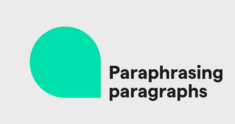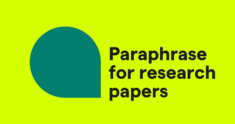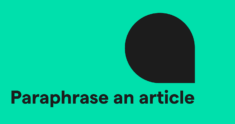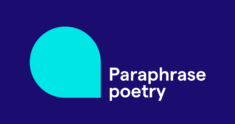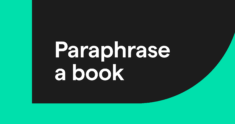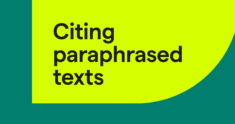
When you’re writing an essay, you naturally want people to read it. Just like the baited hook on a fishing line entices fish, your essay’s hook engages readers and makes them want to keep reading your essay.
What is an essay hook?
An essay hook is a sentence or two that piques the reader’s interest, compelling them to continue reading. In most cases, the hook is the first sentence or two, but it may be the entire opening paragraph. Hooks for essays are always in the first section because this is where the essay needs to hook its reader. If the reader isn’t engaged within the first few lines, they’ll likely stop reading.
An essay hook also sets the tone for the rest of your essay. For example, an unexpected statistic in an essay’s first line can tell the reader that the rest of the essay will dispel myths and shed light on the essay’s topic.
6 types of essay hooks
1 Rhetorical questions
Rhetorical questions are popular essay hooks because they make readers think. For example, an essay might start with the question “Is it ethical to eat animals?” Before reading the rest of the essay, the reader answers the question in their mind. As they continue to read, the writer’s arguments challenge the reader’s answer and may change their mind.
2 Fact/statistic
When an essay discusses scientific subjects, social issues, current events, or controversial subjects, a fact or statistic related to the essay’s topic can be a compelling hook. For example, an essay about elementary student literacy might hook readers with a statistic about the percentage of fourth graders that are proficient readers.
The hook could be a fact or statistic that’s well-known and frames the topic in a relatable way, or it could be a completely unexpected or seemingly unintuitive one that surprises the reader. In any case, they set the tone for the rest of the essay by supporting the writer’s position from the outset.
3 Quote
Quotes are often used as essay hooks because they’re succinct, often recognizable, and when they’re from an expert source, they can support the writer’s position.
For example, an analytical essay comparing two books might hook readers with a quote from one of the books’ authors that sets the tone for the rest of the essay and gives a glimpse into that author’s work.
4 Anecdote
Anecdotes are often used as hooks in personal essays. A personal story makes the essay relatable, creating familiarity with the reader that makes them want to read more. An example of an anecdote hook is a persuasive essay about rerouting traffic on campus that starts with a personal story of a vehicular close call.
5 Description
A description focuses on specific imagery related to the essay’s subject. For example, an argumentative essay in support of new recycling policies might hook readers with a bleak description of what happens to batteries and other hazardous materials when they aren’t recycled.
6 Common misconception
Similar to an unexpected fact, a hook that dispels a common misconception surprises the reader and educates them about something they likely misunderstood. For example, a compare-and-contrast essay about different mindfulness strategies might start with a common misconception about how mindfulness works.
Creating a hook for different writing prompts
Strong hooks for essays align with the essays’ tones, types, and topics. As you start working on an essay, think about your topic and goals for the essay. Are you trying to persuade the reader? Dispelling a common misconception can be the hook you need. Are you telling an entertaining personal story with bigger themes about your life experience? Start it off with an engaging anecdote. Are you defending a position? Share an unexpected fact and let the truth speak for itself.
Sometimes, it’s not easy to tell which kind of hook your essay needs. When this is the case, it can be helpful to write the rest of your essay, then come back to your introduction and write the kind of hook that would make you want to read that whole essay. Refer to your essay outline to ensure that it fits your essay goals.
Essay hook examples
- Is it too late to save our planet from climate change?
- Before I could speak, I sang.
- “If we are truly a great nation, the truth cannot destroy us.” —Nikole Hannah-Jones
- Contrary to popular belief, rats are among the most fastidious animals.
- I can’t be late for class—this could be the most important day of my life!
Essay hook FAQs
What is an essay hook?
An essay hook is a sentence or two that grabs the reader’s attention and piques their interest, enticing them to continue reading.
What are the different types of essay hooks?
- Anecdote
- Rhetorical questions
- Description
- Fact/statistic
- Quote
- Common misconception
Why is it important to have a good essay hook?
It’s important that hooks for essays be well crafted, because in many cases, the reader won’t continue reading an essay if it doesn’t hold their interest. The hook grabs their attention and makes them want to read on.

